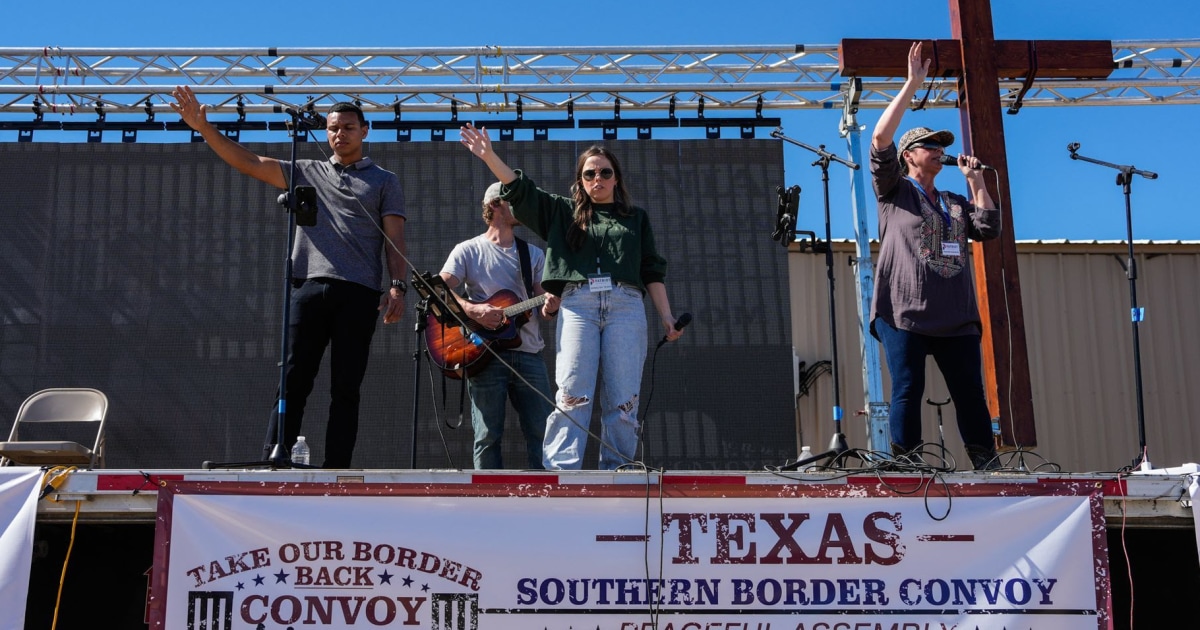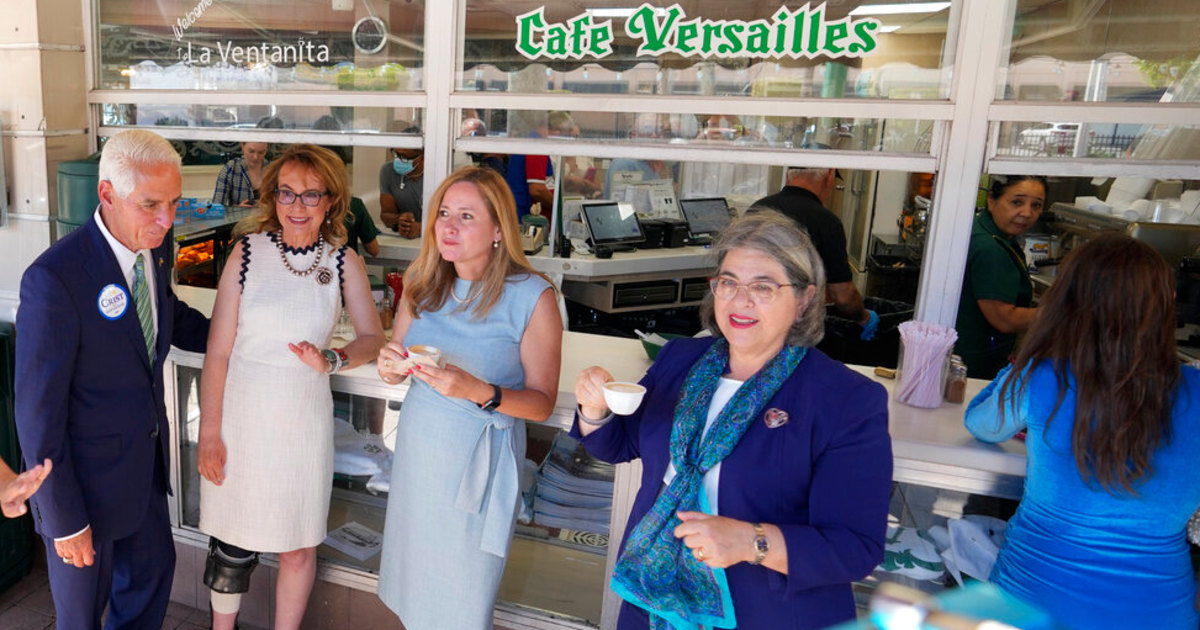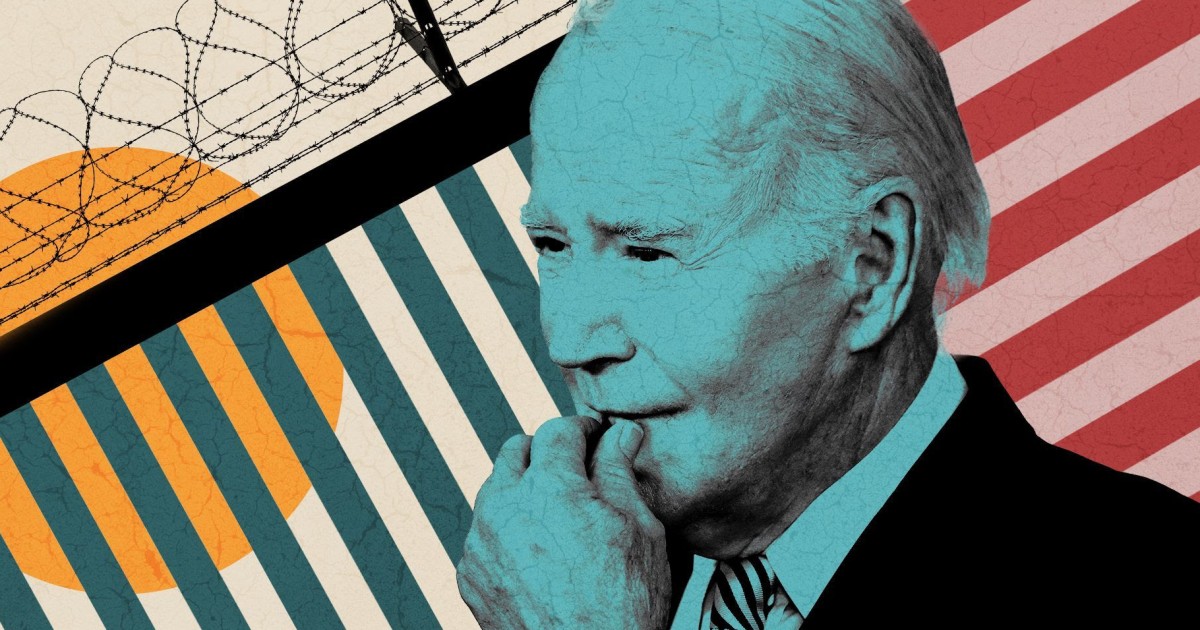📢
Axios Latino is published every Tuesday and Thursday.
If you are interested in subscribing and receiving it in your mail (
in English
), you can do so
by clicking here
.
You will always find it in Spanish on Noticias Telemundo.
1 theme to highlight: Catholicism, in decline
Catholicism is losing power in Latin America, the region where it has had the most faithful for decades.
Why It Matters
: Historically, the weight of Catholicism has influenced Latin American laws and policies, especially around euthanasia and abortion.
The growing secularism and secularism are already causing sociopolitical changes.
In recent years, several countries in the region have decriminalized abortion, have recognized equal marriage and have promoted the rights of trans people.
There is also a growing movement in favor of euthanasia.
General panorama
: The number of Latin Americans who say they have no religion increased 11 percentage points between 2000 and 2020, according to the most recent survey by Latinobarometro, the main annual regional poll.
16.6% responded that they do not profess "any" religion.
The number of Latin Americans who identify as Catholic dropped from 76% in 2000 to 70% in 2010 and 57% in 2020.
Fact
: Although secularism has increased a lot as Catholicism falls, evangelical faiths have also grown.
Especially in Brazil, where they accounted for almost a quarter of the population in 2020 (two decades ago it was only 3%);
and in Guatemala, with 41% (in contrast to 19% in 2000).
Between the lines
: The changes are due in part to young people having a greater variety of options to choose from, a change from when Catholicism was seen as the default, religious studies professor Andrew Chesnut explained at a conference in Mexico City. this Wednesday.
The expert added that Protestant and Christian religions have strengthened their recruitment, as have forms of spiritualism, such as
New Age
-type movements that incorporate Mesoamerican traditions.
The Latinobarómetro shows that trust in the Catholic Church is also at a historic low, especially in Argentina and Uruguay —where it has been accused of ignoring the human rights violations committed by dictatorships— and in Chile —where in In recent years, clergy sexual abuse scandals have run deep.
Pope Francis, the first Latin American to lead the Catholic Church, apologized for the "irreparable damage" of these latest cases after a visit to Chile in 2018.
Yes, but
: Catholicism continues to be socially rooted in cultural and folklore aspects, even among non-practicing people.
In El Salvador they celebrate the Day of the Three Kings with a peculiar route
Jan. 6, 202201:48
Many non-Catholic people celebrate traditions like Three Kings Day, for example.
A high percentage of people in the region are baptized, according to the Vatican Pontifical Yearbook, although they do not necessarily participate in other Catholic activities such as catechism or mass.
Even in Uruguay, the least Catholic country, several holidays coincide with religious dates, such as Holy Week (called Tourism Week).
Beyond
: Latinos in the United States have also been drifting away from Catholicism, data from the Pew Research Center shows, as secularism grows around the world.
2. Searching for his children and the truth
🔦
In Mexico, women have taken the search for missing relatives into their own hands, facing relentless danger.
Why It Matters
: Mexico has recorded nearly 100,000 missing or "unaccounted for" people, according to government data from police reports.
It is as if the entire population of Burbank, California, has disappeared.
And the real number could be higher, as more than 90% of crimes in Mexico go unreported, according to official statistics.
What's Happening
: Many relatives of missing persons say they have no choice but to search or investigate themselves, accusing authorities of inaction.
Mothers of the disappeared locate hundreds of human remains in an extermination zone in Mexico
July 16, 202104:42
Groups of mothers of the disappeared have been formed in several states.
They support each other and have been developing their practices along the way.
For example, if after sticking a stick in the ground it smells rotten when it comes out, that means there may be remains, and they dig.
Sometimes they receive advice on where to look, apparently from criminal groups: the collective Solecitos de Veracruz once began an excavation that turned up dozens of remains after men in a truck handed them a hand-drawn map during the day. of the Mothers.
News push
: Women who participate in the searches face serious dangers, either by going into areas with criminal activity to search for mass graves or by criticizing authorities.
Last week, someone tried to break into the safe house where Cecilia Patricia Flores, founder of Searching Mothers of Sonora, was staying.
"I have felt threatened, and I have been displaced, by threats behind a phone or a profile. But that someone wanted me, in particular and that way, attacking me had not happened," said Flores, who has two children. disappeared, to Axios Latino.
Other women were killed in their search for sons and daughters.
The Searching Mothers of Sonora on their way to a site where they dug for the remains of their loved ones, in late 2021Alfredo Estrella/AFP via Getty Images
Between the lines
: Both officials and criminal groups are responsible for the majority of disappearances, according to a recent report by the UN Committee on Enforced Disappearances.
The report says that impunity, with only 6% of cases reaching a court, contributes to the problem continuing to grow.
In his own words
:
On the part of the authorities we do not have the support for searches.
What we do bothers them because we make the problem visible, the generalized insecurity: that every day there are people missing even if they have nothing to do with cartels."
Cecilia Patricia Flores, from the Searching Mothers of Sonora
The other look
: The authorities recognize that they are not enough.
They attribute this to the lack of personnel and limitations of the equipment they have for forensic identifications of missing persons.
The head of the National Search Commission recently wrote that forensic services are "totally overwhelmed" when it comes to finding missing persons (or their remains) and identifying the thousands of remains they have already found, while the number of missing continues to grow.
3. Against misinformation on YouTube
Fighting disinformation in Spanish that is spread in videos was the main topic of the meeting of the Hispanic Caucus of the Congress with the executive director of YouTube, Susan Wojcicki, this Thursday.
Illustration: Aïda Amer/Axios
More details
: The meeting was requested by Hispanic congressmen because misinformation in Spanish is growing on social media, Caucus Chairman Raul Ruiz (D-Calif.) told Axios Tech's Ashley Gold.
Caucus members also have meetings scheduled with TikTok and Twitter in the coming weeks, Ruiz told Axios.
The group has also requested a meeting with Meta, the parent company of Facebook, although nothing is scheduled yet.
The background
: The false information that spreads on the networks in Spanish is not being attacked at the same rate as in English.
Spanish versions of videos with false COVID-19 information removed by moderators in English remained available on networks, Axios Latino reported.
In 2020, YouTube campaign ads with misinformation targeting Latinos pushed Hispanic voters to lean toward Donald Trump, according to a study by the firm Equis.
4. Medical discrimination of older people
One in four Black and Latino adults age 60 and older say health professionals treated them unfairly or ignored their health problems because of their race or ethnicity, according to a new study.
Photo illustration: Sarah Grillo / Photo: Spencer Platt/Getty Images
Why It Matters
: Feeling discriminated against undermines trust in the overall health system among these communities, which already face serious disparities in access to health care and health insurance.
More details
: 27% of older adults who reported discrimination by a provider said they didn't get the care they needed, according to the Commonwealth Fund report.
They also claimed to have worse health outcomes, as reported by Tina Reed in Axios Vitals.
Improving training to make medical students more culturally sensitive or having better systems for patients to report symptoms or pain could make a difference, said report co-author Morenike Ayo-Vaughan.
Don't forget
: Black and Latino people in the United States experience a higher incidence of diseases like type 2 diabetes, which is preventable, and high blood pressure.
That has also made them more vulnerable to severe cases of COVID-19.
5. Summary of key news in Latin America and the Caribbean
The Legislative Assembly of Puerto Rico debates a measure against abortion
on the island.
The bill prohibits abortions from 22 weeks.
There is currently no pregnancy limit in Puerto Rico.
The Puerto Rican Senate began the debate this week, after several states in the continental US enacted similar measures while waiting for the Supreme Court to rule on these laws.
The Puerto Rican Capitol, in San JuanJinitzail Hernández/CQ-Roll Call, Inc via Getty Images
The Ecuadorian Minister of Defense
,
Luis Bolívar Hernández presented his resignation this week after a scandal surrounding a security breach in the offices of his secretary.
An ex-soldier without authorization entered the Ministry's headquarters in early April in a car full of cash, apparently circumventing several security filters.
Later, it was discovered that he had a pyramid scheme involving members of the Armed Forces.
6. 🎋Bamboo Dreams
Salvadoran women have formed a non-governmental organization to build community centers with bamboo, in order to promote environmental awareness using the plant.
A group of women builds cheap houses with bamboo in El Salvador
April 13, 202201:46
Details
: The Abasorto group promotes this wood that is abundant in the Central American country and grows easily without using much water.
They uproot the bamboo shoots themselves, chop them up and treat them to start building in rural areas.
They also transform bamboo into furniture and kitchen utensils.
Pachanga Thursday:
Lalo Alcaraz presenting one of his cartoons, about the importance of agricultural workersRussell Contreras
Many congratulations to Lalo Alcaraz, friend of Axios Latino and who became the first Latin cartoonist to win the prestigious Herblock Prize.
If you want to be featured in our pachanga festivities, where we celebrate reader achievements, send an email.
Thank you for reading!
We will be back on Tuesday.
Do you want to see some of the most recent previous editions?
First Latino Census Director Discusses Plans to Improve Count
How walking also improves mental health
Los García, a program focused on a Latino family that had been canceled, returns to TV
Fintech apps to solve banking problems faced by Hispanics
Behind the struggle of Latino street vendors in New York









